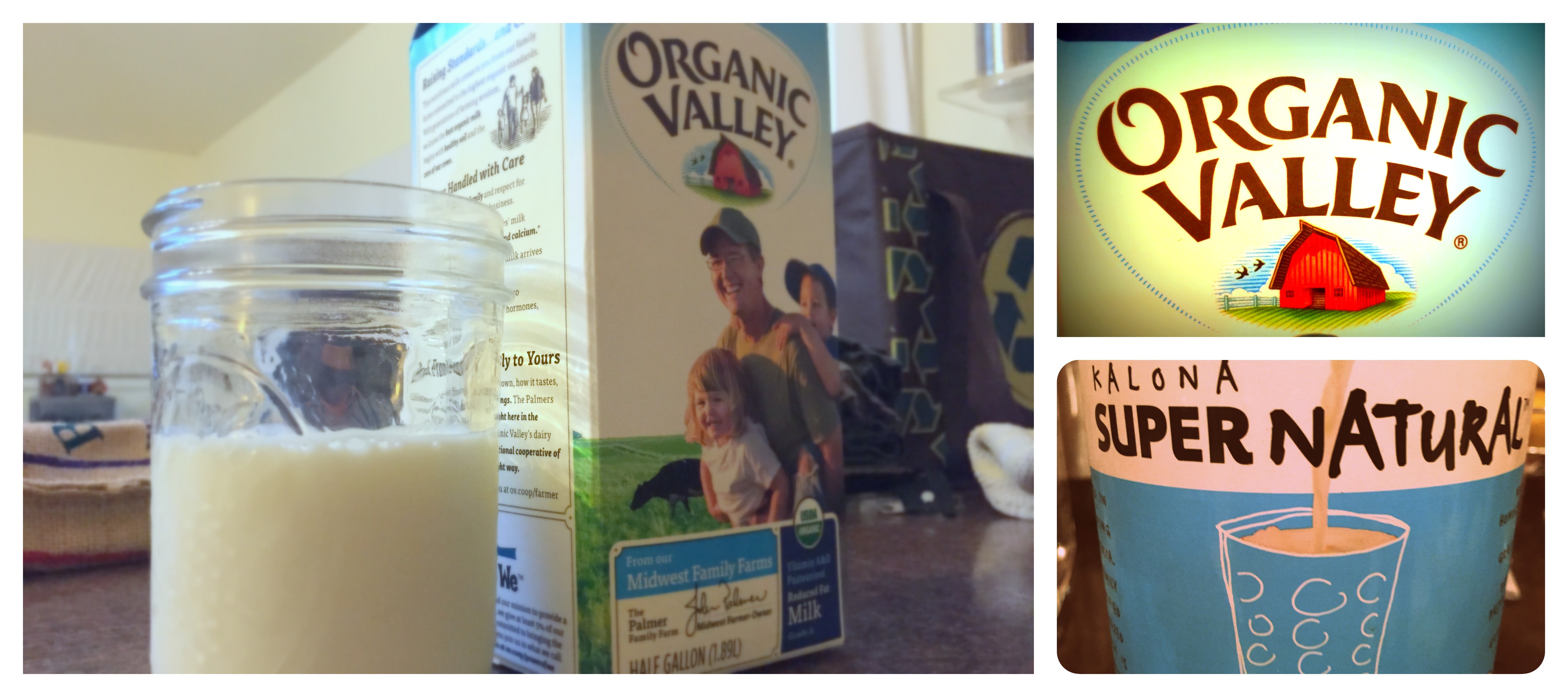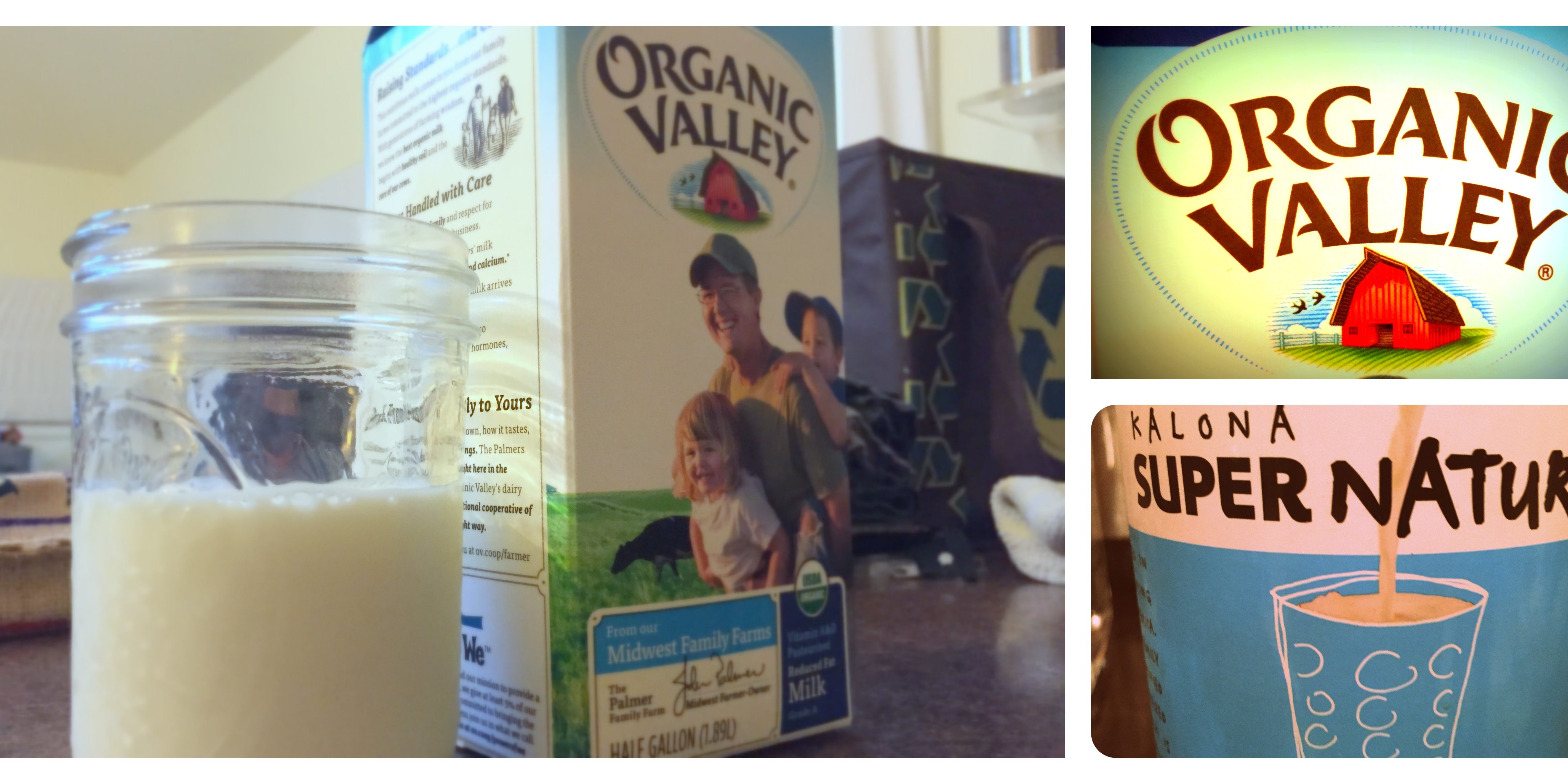 Overwhelmed by the huge number of options in the dairy aisle? When it comes to choosing healthy milk products, there are a few key things to look for. I’ve put together a guide to help make your grocery shopping experience less stressful, at least when it comes to milk selection.
Overwhelmed by the huge number of options in the dairy aisle? When it comes to choosing healthy milk products, there are a few key things to look for. I’ve put together a guide to help make your grocery shopping experience less stressful, at least when it comes to milk selection.
What Factors Affect the Health of Dairy?
In my opinion, milk is an excellent dietary choice for most people. However, many have concerns about toxins and hormones in modern dairy products, as well as the agricultural practices employed by dairy manufacturers.1 Some people even question the health of milk itself. On top of that, consumers are worried about the more expensive cost of buying organic. While these are legitimate concerns, it’s important to look at the big picture.
The nutritional value of organic, well-produced dairy products is well worth the cost.
Milk offers many nutritional benefits. For example, it’s a good source of calcium and protein, and it helps protect against stress.2 Milk also has the benefit of having gone through many natural filters. According to the United States Department of Agriculture, milk and meat contain the least amount of pesticides compared to fruits, vegetables, and grains. Plus, you can avoid the toxins and health risks of conventional milk by simply choosing healthy milk products! For more detailed info about the benefits and risks, read my earlier post on the safety of modern dairy.
Choosing Healthy Milk Products: What to Look For
So what is the best choice when it comes to buying dairy? There are a lot of studies and debates out there regarding which practices are best for the production of healthy milk products. Many questions have been raised, making the decision-making process more complicated for consumers. Grass-fed or grain-fed cows? Growth-stimulated or hormone-free? Pasteurized or unpasteurized? The list goes on. Simplify your grocery shopping by following these tips for selecting healthy milk products for your family.
The next time you find yourself in the dairy aisle, look for milk products with the following information on the labels:
- Grass fed3
- Pasture raised
- Organic certification
- No growth hormones (organic covers this)
- No chemical feed or pharmaceutical agents (100% grass fed is best)
- No additives (e.g. carrageenan, gellan, and gums)
- Low-heat pasteurization (or raw, if available in your state)
- No homogenization
- Glass or BPA-free plastic containers
Amish and Mennonite cultures are known for observing these practices, and many other dairy producers observe them as well. Keep in mind that many small dairies have excellent practices, even though they may not have organic certification. Depending on your location, some brands that are fairly accessible are Kalona Super Natural and Organic Valley (not the cottage cheese). No matter what city you’re in, local versions are usually available at Whole Foods or smaller local grocers and food co-ops. Check the labels carefully, and enjoy your healthy milk products!
Have any questions about choosing healthy milk products? Contact me. Interested in learning more about the latest topics in health and nutrition? Sign up for my monthly newsletter. And stay tuned for more blog posts on dairy!
References
- Kratz M, Baars T, Guyenet S. The relationship between high-fat dairy consumption and obesity, cardiovascular, and metabolic disease. Eur J Nutr 52, No. 1 (Feb 2013): 1-24. http://www.ncbi.nlm.nih.gov/m/pubmed/22810464/
- Biswas NM, Chattopadhyay A, Sarkar M. Protection of adrenocortical activity by dietary casein in ether anaesthetized rats. Indian J Exp Biol 41, No. 4 (Apr 2003): 367-369. http://www.ncbi.nlm.nih.gov/m/pubmed/15255650/
- Hebeisen DF, Hoeflin F, Reusch HP, et al. Increased concentrations of omega-3 fatty acids in milk and platelet rich plasma of grass-fed cows. Int J Vitam Nutr Res 63, No. 3 (1993): 229-233. http://www.ncbi.nlm.nih.gov/m/pubmed/7905466/







